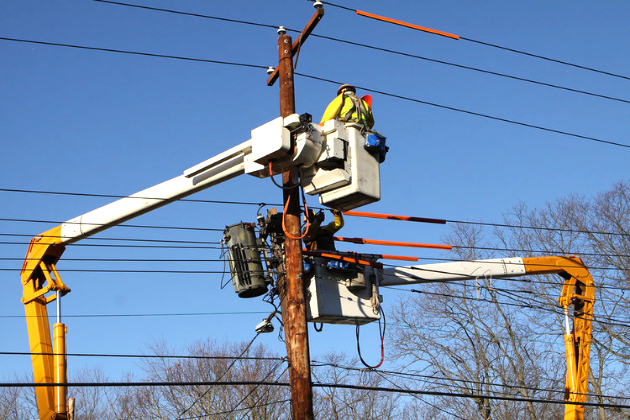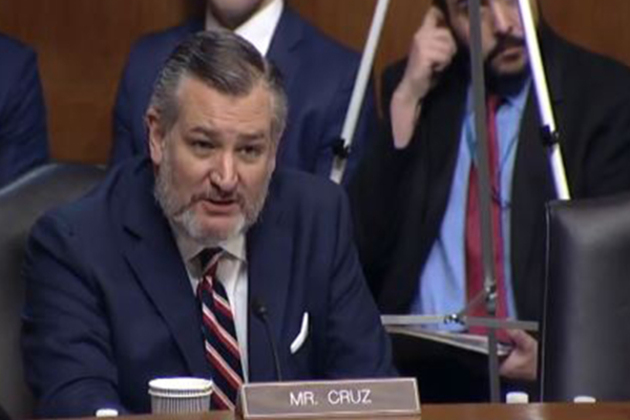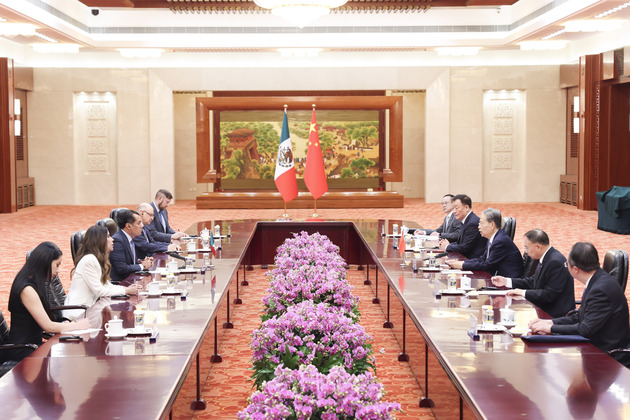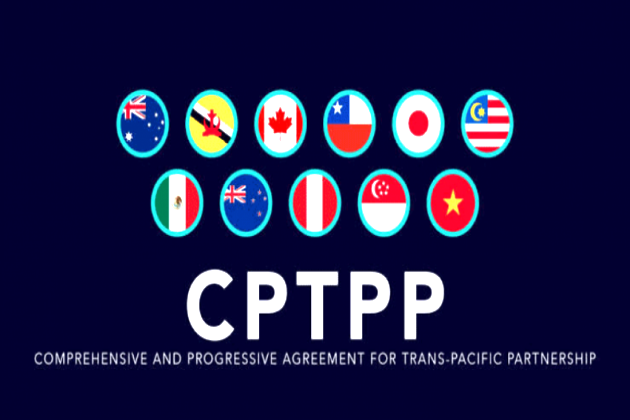The new Carney government must tackle Canada's outdated system of intergovernmental relations
The Conversation
19 May 2025, 13:59 GMT+10
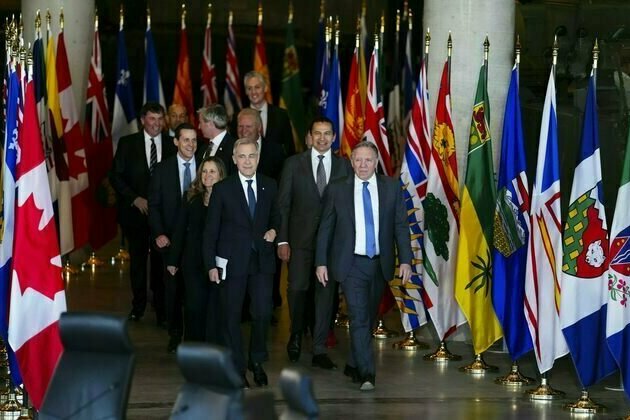
Throughout the recent federal election campaign, political leaders outlined their vision for Canada's future. Responding to a dramatically changing geopolitical climate, party platforms contained ambitious policy proposals about how to reposition the country for the challenges that lie ahead.
Read more: Getting ready for what's next: 4 scenarios for Canada's future in a Trumpian world
But the leaders were silent about how a new federal government would navigate the division of powers among various levels of government in order to bring their proposals to life.
Canada's Constitution separates powers between Ottawa and the provinces based on the principle of divided sovereignty. No order of government is subordinate to the other and, in principle, all governments can act autonomously in their respective areas of jurisdiction.
Life would be easy if the problems we faced adhered to the 1867 Constitution Act. Most challenges, however, transcend the individual categories of jurisdiction. Collaboration among jurisdictions is therefore essential to meet the individual and collective needs of Canadians.
From apprenticeships to energy corridors, childcare to caregiving, most policy areas require sustained and substantive co-ordination to succeed. Often, like in case of housing and climate change, this must also include municipalities.
In addition, intergovernmental co-ordination must finally reflect a nation-to-nation relationship with Indigenous peoples.
Nonetheless, the significance of intergovernmental relations in implementing policy continues to be overlooked, including by the victorious Liberals.
The Liberal Party's Canada Strong platform refers eight times to nation-building projects. But it fails to acknowledge the need to transform intergovernmental relations for 21st century challenges.
Instead, the Constitution is seemingly perceived as a minor inconvenience, not as a key governance challenge: "We will work with the provinces and territories," the policy says, seemingly hoping that somehow things will work out.
Federal leaders seem oblivious to the fact that Canada is one of the most decentralized federations worldwide. The provinces exercise fiscal and jurisdictional autonomy exceeding those of other countries. In the meantime, the decisions of individual provinces and territories have implications that stretch far beyond their own borders.
Natural resources fall under the exclusive jurisdiction of provinces and, increasingly, the territories. But their development profoundly affects economic and environmental policy.
If one province or territory unilaterally decimates the natural resources of their region, it's not just that specific province or territory that bears the consequences. This is just one of many sectors in need of collective consideration so that all of Canada benefits.
Read more: 'Elbows up' in Canada means sustainable resource development
There is a simple truth here: orders of government in Canada are not completely autonomous over their areas of jurisdiction. The federal government does not have the legitimate authority to compel provincial-territorial action; in the meantime, provinces and territories have little means to influence federal policy according to the needs and wants of their constituents.
Rather than tackling this institutional problem, the federal government often asserts itself as the leader Alternatively, the federal government evokes an ad hoc "Team Canada" approach in response to imminent crises, like the re-negotiation of the former NAFTA agreement in 2017 and today's threats and tariffs by U.S. President Donald Trump.
Read more: Why Alberta's Danielle Smith is rejecting the Team Canada approach to Trump's tariff threats
Neither option, however, addresses the deeper problem: intergovernmental relations in Canadian federalism are notoriously weak and lack the legitimacy and transparency to bring about effective collective action.
Canadian and international research shows that a robust institutional framework is critical for nurturing the key ingredient for effective and legitimate intergovernmental relations: Reciprocity.
Regular policy meetings among governments and senior level public servants, especially when backed by sufficient administrative and political support, promotes shared norms and understandings, enhancing the potential for long-term policy solutions.
If this type of regular collaboration is entrenched, it would be more difficult to obstruct meaningful collective action that respects Canada's political integrity.
Reciprocity is at odds with Alberta Premier Danielle Smith's threats to create a national unity crisis if a list of demands isn't met. It is also at odds with Ottawa's penchant under former prime minister Justin Trudeau to use federal tax dollars to pursue policy objectives that were within provincial jurisdiction.
As Mark Carney's new government gets to work, Canadians must question not only the fiscal soundness of its proposals, but also their feasibility considering the deep divisions in Canadian federalism.
Without taking tangible steps to reimagine Canada's outdated system of intergovernmental relations or developing a road map for institutional reform, the lasting policy changes that are needed to reposition Canada in an increasingly hostile environment are unlikely to materialize.
About 100 Canadian academics recently argued in an open letter, Canada needs to establish a royal commission for securing Canada's future. As past experience has shown, this approach has great potential, but it must be developed in partnership among federal, provincial and territorial governments, including those of First Nations, Metis and Inuit peoples.
 Share
Share
 Tweet
Tweet
 Share
Share
 Flip
Flip
 Email
Email
Watch latest videos
Subscribe and Follow
Get a daily dose of Calgary Monitor news through our daily email, its complimentary and keeps you fully up to date with world and business news as well.
News RELEASES
Publish news of your business, community or sports group, personnel appointments, major event and more by submitting a news release to Calgary Monitor.
More InformationNorth America
SectionSummer could strain power supply in US, Canada, grid operator warns
WASHINGTON, D.C.: Parts of the U.S. and Canada may not have enough electricity this summer if hot weather causes more people to use...
Trump calls for "major investigation" into Kamala Harris's celebrity endorsements during presidential campaign
Washington DC [US], May 19 (ANI): US President Donald Trump has called for an investigation into Kamala Harris's use of celebrity endorsements...
US Senator Ted Cruz urges lifting restrictions on displaying Taiwan flag
Washington, DC [US], May 19 (ANI): US Senator Ted Cruz has called on the State Department to lift restrictions on displaying symbols...
CHINA-BEIJING-ZHAO LEJI-CHAMBER OF DEPUTIES OF MEXICO-PRESIDENT-TALKS (CN)
(250519) -- BEIJING, May 19, 2025 (Xinhua) -- Zhao Leji, chairman of China's National People's Congress Standing Committee, holds talks...
Starve the people, miss the point: The cruel logic of sanctions
Often applied by the West as a tool to force countries into political changes, sanctions fail to achieve their objectives ...
World Insights: EPC summit ends in multiple challenges
With no non-EU country volunteering to host the 2026 summit, doubts about the EPC's long-term viability continue to grow. As the European...
Canada
SectionSummer could strain power supply in US, Canada, grid operator warns
WASHINGTON, D.C.: Parts of the U.S. and Canada may not have enough electricity this summer if hot weather causes more people to use...
Sweden backs EU entry into Pacific trade bloc
STOCKHOLM, Sweden: Sweden plans to propose that the European Union join the Pacific Rim trading bloc, the CPTPP, aiming to create the...
US sees absolute decline in international visitor spending
NEW YORK - International travel spending in the United States is projected to decline by 7 percent in 2025, amounting to a US$12.5...
Starve the people, miss the point: The cruel logic of sanctions
Often applied by the West as a tool to force countries into political changes, sanctions fail to achieve their objectives ...
The new Carney government must tackle Canada's outdated system of intergovernmental relations
Throughout the recent federal election campaign, political leaders outlined their vision for Canada's future. Responding to a dramatically...
For a Canadian in London, King Charles' Royal Garden Party inspires sustainability education
On a glorious afternoon recently, I had the good fortune to attend a specially themed Education and Skills Garden Party hosted at Buckingham...

